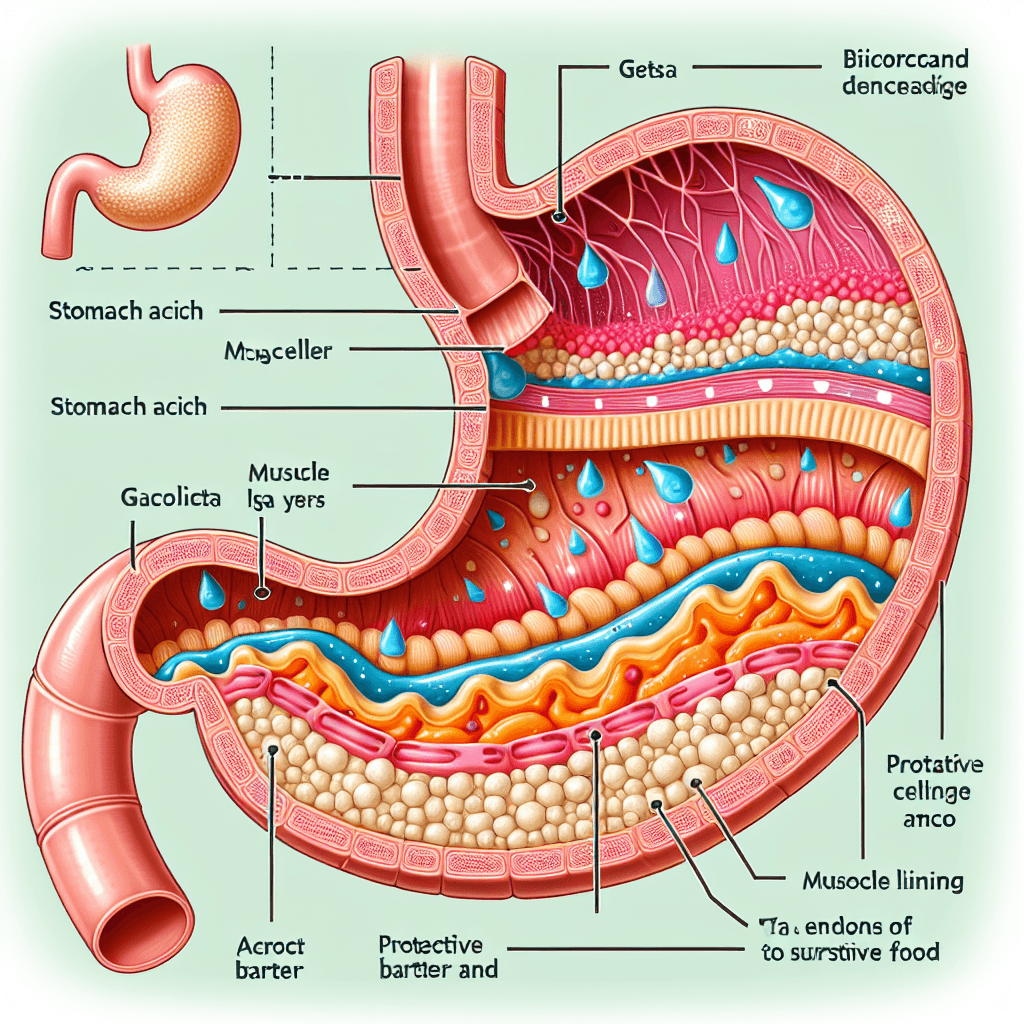Why doesn't the acid in your stomach just eat right through you
The acid in your stomach is strong enough to dissolve steel, so what incredible biological armor stops it from dissolving *you*?


Too Long; Didn't Read
TLDR: Your stomach is protected by a thick, alkaline mucus layer that neutralizes the acid. It also constantly replaces its own cells every few days, repairing any damage before the acid can eat through.
Your Body's Ultimate Defense: Why Doesn't the Acid in Your Stomach Just Eat Right Through You?
Have you ever considered the sheer power churning inside you right now? The acid in your stomach is an impressive chemical powerhouse. With a pH between 1.5 and 3.5, it's strong enough to dissolve iron nails and is a formidable barrier against harmful bacteria in your food. This raises a critical and fascinating question: if this gastric acid is so potent, why doesn't it simply digest the very organ that produces it? The answer isn't a single trick but a sophisticated, multi-layered defense system that is a testament to the marvel of human biology. This post will explore the incredible mechanisms that protect your stomach lining, allowing it to perform its vital digestive duties without self-destructing.
The Mighty Mucus Shield
The first and most robust line of defense against self-digestion is a thick, gel-like layer of mucus that coats the entire inner surface of the stomach. This isn't just any simple slime; it's a highly specialized biochemical shield. Produced by goblet cells in the stomach wall, this mucus is rich in glycoproteins called mucins, which make it viscous and stable.
However, the real secret ingredient is bicarbonate. The cells of the stomach lining secrete bicarbonate ions directly into the mucus layer. Bicarbonate is alkaline, the chemical opposite of acid. It effectively neutralizes any hydrochloric acid that comes into direct contact with the stomach wall. This creates a pH-neutral micro-environment right at the surface of the lining, keeping the corrosive acid at a safe distance while it works on your food in the stomach's central cavity.
A Cellular Fortress with Rapid Reinforcements
Beneath the mucus shield lies the stomach's epithelial lining—a fortress of specialized cells. These cells are packed together and stitched shut by what are known as "tight junctions." These protein connections act like mortar between bricks, forming an impermeable barrier that prevents gastric acid from seeping through to the more delicate tissues underneath.
Even with this barrier, the environment is harsh, and some cells inevitably get damaged. The body’s solution is astonishingly simple and effective: constant renewal. The epithelial cells of the stomach have one of the fastest turnover rates in the entire body. According to research on cell biology, the entire stomach lining is replaced approximately every three to six days. Damaged cells are constantly being shed and replaced by new, healthy ones, ensuring the integrity of the barrier is never compromised for long. It's like a castle wall that is perpetually being rebuilt, brick by brick.
The Smart Control System: Hormones and Blood Flow
A third crucial element supports these physical barriers. The body uses a clever chemical signaling system to maintain and regulate its defenses.
- Prostaglandins: These local, hormone-like substances are crucial defenders of the stomach. They stimulate the production of both protective mucus and neutralizing bicarbonate. They also play a vital role in increasing blood flow to the stomach lining. This is why certain medications that inhibit prostaglandins, such as nonsteroidal anti-inflammatory drugs (NSAIDs) like ibuprofen, can increase the risk of stomach ulcers by weakening these natural defenses.
- Robust Blood Supply: The stomach wall is rich with blood vessels. This constant blood flow delivers the oxygen and nutrients necessary for the rapid cell regeneration described earlier. It also serves to quickly wash away any stray acid that might breach the first two lines of defense, preventing it from accumulating and causing damage.
Conclusion
The reason your stomach doesn't eat right through you is not a single feature but a dynamic and brilliantly coordinated defense system. It's a perfect example of biological engineering, where multiple layers of protection work in harmony to maintain a delicate balance between powerful digestion and self-preservation. From a neutralizing mucus shield to a constantly regenerating cellular wall supported by a smart chemical response, your body has it all covered. So, the next time you sit down for a meal, you can appreciate the silent, powerful, and intricate work your stomach is doing—not just digesting your food, but also diligently protecting itself.


